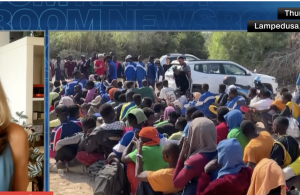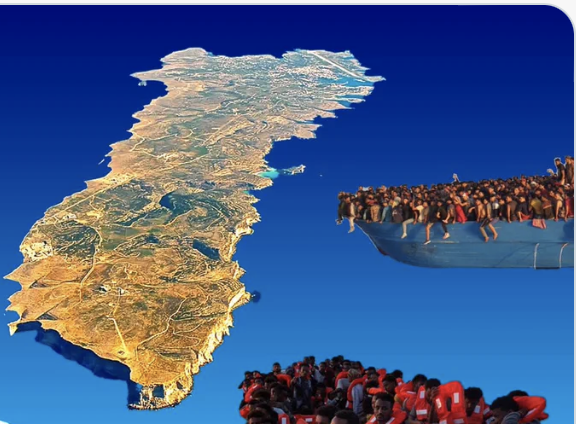
European Commission President Ursula von der Leyen on Sunday visited the Italian island of Lampedusa, which is struggling with a surge in migrant arrivals, and promised a 10-point EU action plan to help Italy deal with the situation.
The EU has promised immediate support to Italy, but has failed to clarify what new measures its so-called ’10-point plan for Lampedusa’ includes.
Among the pledges made by the EU are supporting Italy to transfer migrants to other EU member states, returning migrants to their countries of origin, and considering new “naval missions” in the Mediterranean.
It also promises to implement the controversial migration deal struck between the EU and Tunisia in July. A total of €105 million in EU aid has been allocated to stem migration from the North African country, which has become a popular departure point for Europe, but payments are yet to be made.
The super-bureaucrat, EU Commission chief Ursula von der Leyen joined Italian premier Giorgia Meloni in Lampedusa over the weekend, where she visited reception centers that have been overwhelmed by the influx of migrants making the dangerous journey from North Africa, primarily from Tunisia. CNN pointed out she did not speak or meet with a single “migrant”.
It doesn’t seem to have impressed the mayor of Lampedusa who has seen more immigrants arrive in the last week than there are residents on the island.
Italy is run by a right-wing leader, Giorgia Meloni, who won office last year vowing to curb illegal immigration, and she appears to agree more with the mayor than the EU, and earlier today passed measures to lengthen the time migrants can be detained and ensure more people who have no legal right to stay are repatriated.
Under Italian law, migrants facing repatriation can be held if they cannot be immediately expelled. Officials say a majority of migrants head to Italy for economic reasons and are therefore not eligible for asylum.
Past efforts to hold migrants have largely failed, with those detained repeatedly breaking out of centres and often heading straight to wealthier northern European countries.
Mayor of Lampedusa explodes over 10,000 man invasion of Italy on his island https://t.co/ZPEqhG4WG3
— richardstuartphilips (@philiprichards5) September 18, 2023
